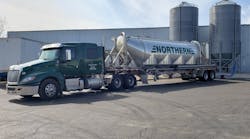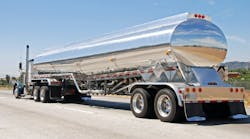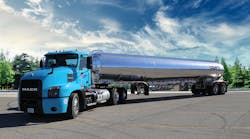Recently released data from the Census Bureau and the Bureau of Transportation Statistics again showed that trucking is the dominant mode for moving freight in the United States. This is especially true for liquid and dry bulk shipments.
“The Commodity Flow Survey showed once again that trucks move the vast, vast majority of freight in the United States,” says Bob Costello, American Trucking Associations chief economist. “Since it is only updated every five years, the CFS report is a critical tool for policymakers and researchers in examining the freight market. The government should ensure that reports like it, including the Vehicle Inventory and Use Survey (VIUS), are updated on a regular basis.”
The VIUS was discontinued in 2002.
Costello highlighted a number of the Commodity Flow Survey’s results as particularly enlightening:
- In 2012, trucks moved 73.7% of all freight by value and 70% of the tonnage versus 3.3% of value and 15.8% of tonnage moved by rail;
- The average length of haul for trucks is 212 miles;
- Only 3% of freight tonnage moved on multiple modes--ie a train and a truck, or a barge and a truck;
- Just 15.1% of all freight shipments were longer than 500 miles and only 9.7% traveled more than 750 miles.
“The length of haul data is crucial, particularly when talking about rail and truck competition,” Costello says. “While feasible under certain conditions, the potential for rail intermodal to gain a significant amount of truck market share is limited. Now more than ever, the two modes are more likely to complement each other than compete for business.”








